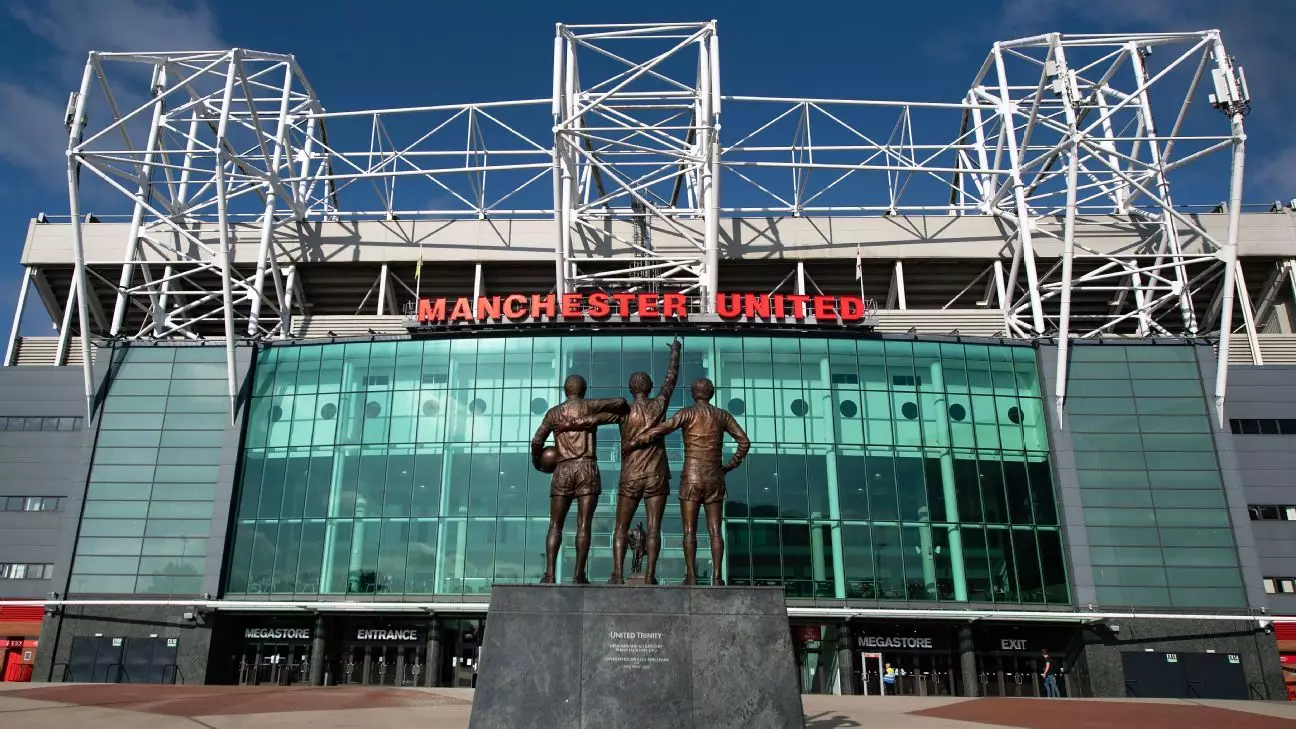Manchester United, one of the most decorated football clubs in history, finds itself at a critical junction following the dismissal of manager Erik ten Hag. The repercussions stemming from his tenure and subsequent exit are not merely on-field difficulties but extend deeply into the financial realm, compelling the club to reassess its overall strategy and viability moving forward. The latest quarterly financial accounts unveiled an alarming $18.2 million payout to Ten Hag, his coaching staff, and former sporting director Dan Ashworth, underscoring the steep price of managerial changes in a competitive sports landscape.
Ten Hag’s termination came only months after he had led United to a hard-fought FA Cup victory, a win that initially seemed to herald a resurgence for the club. However, finishing an unprecedented eighth in the Premier League, the ramifications of underperformance were profound. The decision to extend Ten Hag’s contract until 2026 now appears ill-advised, resulting in substantial compensation costs that were characterized as “Exceptional Items” in the club’s published accounts.
In parallel, Ashworth, who had only recently joined the club, departed after five months. His exit reflects not just a disruption in the management team but raises questions about the strategic direction of the club, especially given the hefty compensation that came with such swift transitions. The club’s leadership must grapple with the dual challenge of stabilizing the on-field performance while navigating the murky waters of financial accountability.
Financial troubles further intensify with an alarming £44.8 million drop in broadcasting revenue compared to the previous year. This decline can be attributed to the club’s presence in the Europa League rather than their accustomed Champions League berth. The stark disparity calls into question United’s strategic positioning in European football and points toward an urgent need for improvement. The broadcasting revenue fallout is not just about numbers; it’s a clarion call to prioritize performance improvement on the pitch and to cultivate a squad capable of competing at Europe’s highest levels once again.
Moreover, United’s net finance costs have skyrocketed, driven by unfavorable foreign exchange fluctuations, highlighting the additional pressures the club faces in maintaining financial health amid global economic uncertainties. The necessity for change resonates not only with the men’s team but also demands consideration of leadership’s broader operational strategy.
Despite the grim financial prognostics, the club’s CEO Omar Berrada expressed confidence in the potential for recovery, focusing on enhancing the league position of the men’s team. However, locating a solution to the dual crises of financial instability and on-field underperformance must take precedence. The team’s precarious positioning just above the relegation zone starkly contrasts with ambitions of greatness that the club has historically harbored.
Facing Everton in a critical matchup, the urgency for a turnaround has never been more pronounced. Yet, these challenges extend beyond the men’s team; the women’s team, performing commendably in the Women’s Super League, showcases a flicker of success amid the overall struggles.
The plans for two significant projects—the redevelopment of Carrington Training Complex and a long-term vision for Old Trafford—offer hope for rejuvenating the club’s infrastructure and culture. Government support for the Old Trafford project signals potential community and economic investment, which could have lasting benefits.
The financial results have sparked responses from the Manchester United Supporters Trust (MUST), which underscored how an increase in ticket prices may not suffice to resolve the underlying issues. The call for accountability resonates strongly, pushing for management to address a “crippling” debt situation while also citing the extensive mismanagement of the past decade as contributing factors to the current predicament.
As fans fill the stands, their voices carry weight in potential transformations that the club might undertake. Without their support, no strategy will be sustainable long-term. Therefore, re-engaging with the fanbase through transparent dialogue is critical, reinforcing a sense of community amid adversity.
Manchester United’s current financial evaluation serves not only as a wake-up call but as an opportunity for transformative action. Leadership must pivot from merely reacting to crises to proactively charting a cohesive and positive trajectory for the club. By optimizing financial health, fostering on-field performance, and engaging the fanbase in meaningful conversation, the Red Devils can rediscover their place among football royalty—not just in name, but in legacy.

